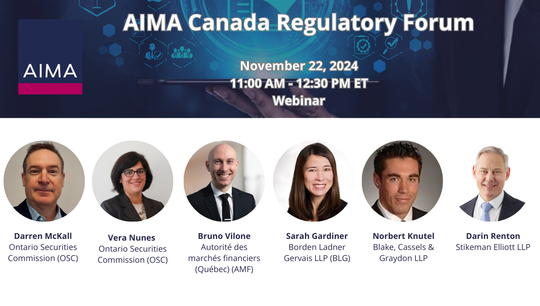The war in Ukraine: Seeking redress through investment treaty claims
By Adam Brown; Basil Woodd-Walker; Mark Uttley, Simmons & Simmons
Published: 27 June 2022
Introduction
The war in Ukraine has had a profound economic impact on asset managers with exposure to Russia. The Russian response to Western sanctions has been to threaten or impose its own counter sanctions, restrict the transfer of funds abroad, introduce discriminatory trading restrictions against foreign investors holding securities listed on the Russian stock exchange, and nationalise foreignowned assets and businesses.
What can and should asset managers do about this? Many businesses are exiting Russia voluntarily, but many others are being forced out. Investors are having to write off very large sums from their balance sheets or, at the least, significantly mark down the value of their Russian investments. A number of commentators have written about the use of side pockets and other measures to deal with stranded Russian investments. However, asset managers should also consider whether there is anything that they can do to defend their positions and asset valuations, or even to seek legal redress. A potential avenue for remedy would be to bring a claim under an applicable investment treaty, which may offer asset managers, funds or their investors the ability to bring a claim against Russia in a neutral forum to seek potentially significant damages for the loss of their investments caused by the actions of the Russian State.
What is an investment treaty?
Investment treaties are designed to promote investment by the investors of one contracting State into the territory of the other contracting State. They contain a number of protections for investors, including guarantees of fair and equitable treatment, protections from unlawful expropriation without adequate compensation, and guarantees that investments and income can be repatriated by the investor to their home State. Russia is a party to over 60 bilateral investment treaties. These include several jurisdictions in which major institutional investors and investment managers are based (for example the UK, Singapore, France, and Germany), and others that are commonly seen in investment fund structures, such as Luxembourg and the Netherlands. There are also numerous multilateral treaties containing investor-State protections.
If Russia infringes the protections afforded to qualifying investors under these treaties, an investor may be able to bring proceedings in international arbitration – a neutral forum – to seek redress.
Very broadly, assuming the offer to arbitrate is wide enough to cover the dispute, if someone qualifies as an ‘investor’ with an ‘investment’ under an applicable treaty, they may bring a claim. An investment manager, fund or a fund investor will therefore need to establish that they fall within the applicable definitions.
What is the definition of an ‘investor’?
The starting point for the definition of an ‘investor’ is the definition used in the particular treaty. In general, this is very broad. There is also usually general wording to the effect that it includes both natural and legal persons. There are different approaches to establishing whether a legal person is covered. Quite often it is by reference to where the entity is incorporated but may also be by reference to where it has its seat or management. This has potential implications in an investment fund context, where the fund vehicle may incorporate in one jurisdiction, but the management entity be located in another.
Some investment treaties state that the investor needs to have ‘substantial economic activities’ or ‘substantial business activities’ in the State in question. This may preclude a claim being made by a shell holding company. However, that is not always the case, and if this requirement is not stipulated in the treaty, then a claim may be permitted. The definition of ‘investor’ can also often extend to indirect ownership, either explicitly or implicitly. This means that the fact there are intervening companies in a corporate structure will not prevent a company higher up the chain from bringing a claim. This can be the case even if the corporate structure includes intermediate holding companies located in a third-party State (i.e., without an investment treaty). Indeed, the corporate chain may provide access to more than one investment treaty claim. If the intervening companies are incorporated in other jurisdictions with investment treaties in place, there is nothing to stop each company in the chain bringing a claim. They would not be able to make double recovery, but they can run multiple proceedings in order to increase the overall chances of success.
What is the definition of an ‘investment’?
As with the definition of an ‘investor’, the definition of an ‘investment’ in investment treaties is, again, typically very broad. An investment will almost certainly include an ownership interest in physical assets involved in running a business, such as civil infrastructure or machinery, as well as shares in project companies in the host State.
However, the definition of ‘investment’ is usually much wider than this, often encompassing every kind of asset including:
(i) movable and immovable property, and other related property rights such as mortgages;
(ii) shares and other forms of participation in a company or business enterprise;
(iii) claims to money, and claims to performance under contract having a financial value;
(iv) IP rights, technical processes and know-how attached to an investment; and
(v) rights, conferred by law or under contract, to undertake the search for, or the cultivation, extraction or exploitation of natural resources.
Notwithstanding that these definitions are already very expansive, in many treaties the categories are non-exhaustive, allowing investors to argue for other forms of asset to be included. A possible issue arises with portfolio investments, that is, investors whose only interest in an asset is as an investment rather than holding a stake for management purposes (which may cover investments made by the majority of managers and funds).
Different tribunals have made different comments on this, which emphasises the need to consider
the terms of the treaty carefully and to choose your tribunal with care.
Enforcement
A lack of optimism on enforcement is a common theme of commentators on this topic, particularly on whether Russia’s creditors will be able to enforce against sufficient assets to cover their claims. It has been estimated that affected Ukrainian parties alone will need hundreds of billions of dollars and previous enforcement against Russia has been fraught with difficulties.
Nevertheless, it is reported that about 40-50% of the Central Bank of Russia’s foreign reserves have been frozen as a result of recent sanctions – estimated at about US$643 billion. Accessing these funds would be very difficult. In England – and in most countries – the reserves of foreign central banks are subject to sovereign immunity, but if the sanctions against Russia continue for many years, these assets may well become a target for determined and tenacious creditors willing to test the law in this area.
Some creditors may also seek to enforce against the assets of Russian State-owned companies –some of which have substantial assets located abroad. Whilst this would be challenging in the UK, the enforcement of arbitration awards is by nature international and cross-border. Arbitration awards can be enforced very widely across the world under the New York Convention. Executing an award against Russia against the assets of State-owned entities may be a viable option in some jurisdictions.
Practical considerations
Asset managers and funds with exposure to Russia should consider undertaking the following actions:
- audit investments and investment structures to establish which may qualify for investment treaty protections;
- preserve documents. These records will be the evidence needed to prove a legal claim for damages. This is particularly important for businesses or offices actually based in Russia. If those businesses or offices are expropriated, access to evidence may be lost, so it is important to preserve data off-shore where possible;
- when divesting assets, consider whether a right to bring a claim can be retained, or whether that right will be sold together with the asset and, if so, how that right may affect the value of the transaction;
- conduct valuations now with the benefit of control of the asset and access to documents. This should cover the value of the investment today – at any impaired value – and also the value prior to the imposition of Russia’s measures; and
- assess claim viability now: enforcement is unlikely to be easy or swift. However, prospects of enforcement are maximised by taking decisive action early, to be at the front of the queue – with an enforceable award in hand – in the global enforcement race that will follow;
- take legal advice on funding options: you may be able to obtain third party funding for your claim in return for a share of recovered proceeds;
- consider sending any notice of dispute sooner rather than later, as most investment treaties contain a cooling off period requiring parties to negotiate before commencing a claim – timeframes vary but these are typically 3 or 6 months.
In short, claims under investment treaties may provide an enforceable avenue for the recovery of value for asset managers in light of Russian counter sanctions and other measures which discriminate against foreign investors in Russia. Practical steps to investigate any rights are available and should be considered sooner rather than later in case further measures are brought in.
If you would like to know more, please contact one of the authors of this article.







